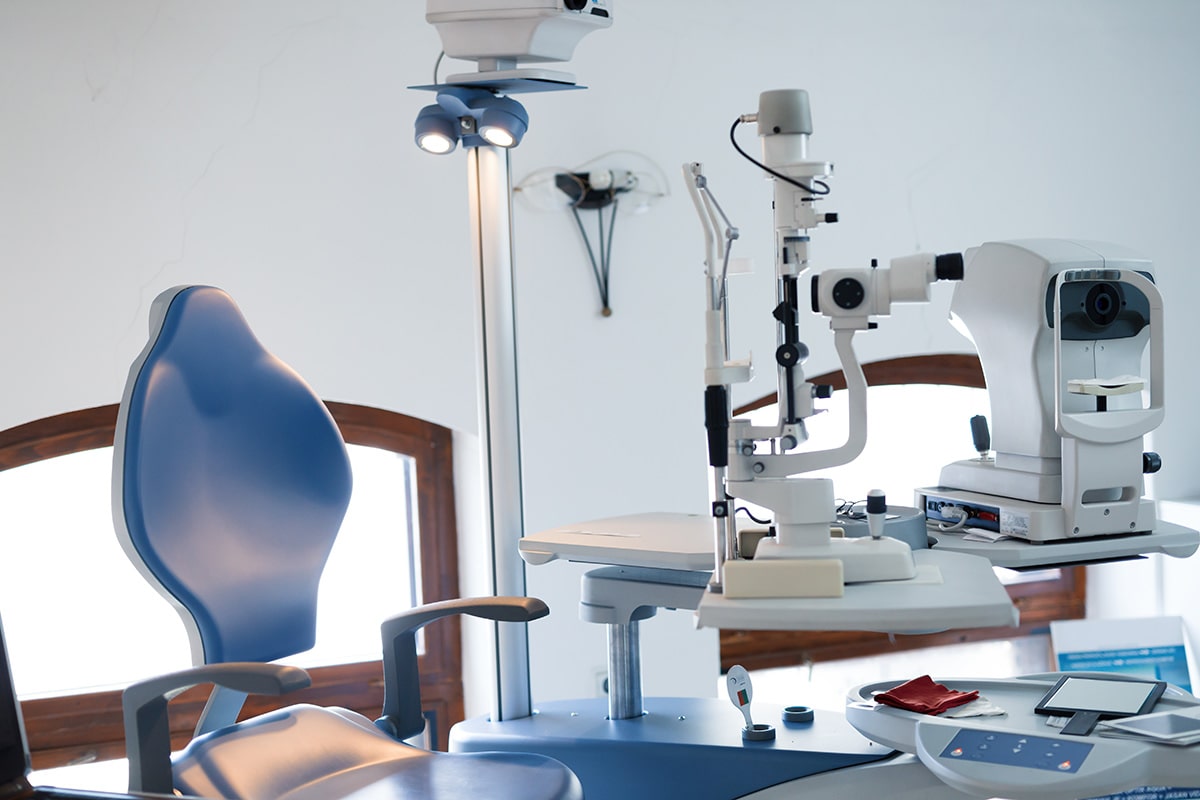Affordable monovision LASIK at only $999 per eye may be best for you if you are tired of bifocal glasses! Over time, we all are faced with the loss of our near vision to one degree or another. At around the age of 40, most people begin to develop a condition called presbyopia, which basically means that their natural lenses are no longer able to adjust so that nearby objects can be seen clearly. The common solution to this problem has been reading or bifocal glasses.
LASIK surgery is exceptionally effective at treating both hyperopia (farsightedness) and myopia (nearsightedness). Because LASIK involves the reshaping of cornea and does not have any effect on the eyes natural lens, it cannot correct presbyopia, per se. That said, for certain patients with presbyopia, monovision LASIK may be a good option. Our Reading PA LASIK center, Columbus & Perfection Lasers, offers monovision LASIK as an alternative for qualified patients who wish to restore their distance vision while retaining the ability to read and perform other activities that require acute near vision.
Mild Presbyopia among Nearsighted Patients
The initial effects of presbyopia on some nearsighted patients might at first seem quizzical to those who associate the condition with the need for reading glasses. This is because many nearsighted patients do not require reading glasses to see passably well up close. In fact, they need to remove their prescription glasses in order to read. The lenses that correct their distance vision actually distort their near vision.
If this seems confusing, think of it like this. Glasses for nearsighted patients are intended to correct their distance vision to the extent that it is more or less equal to that of people who are not nearsighted. When people who are not nearsighted develop presbyopia, they can still see clearly at a distance, but their near vision will be impaired. The corrected vision of (some) nearsighted patients will follow suit: they will remain able to see clearly at a distance, but their near vision will be impaired.
Therefore, when such nearsighted patients undergo LASIK, their unaided distance vision will be improved, but their near vision will now be compromised. Where they were once able to remove their glasses and see up close fairly well, they will now require reading or bifocal glasses to see clearly.
Monovision LASIK
For many patients, the ability to see clearly at a distance justifies the loss of their unaided near vision. These patients often choose to undergo LASIK for hyperopia and simply keep a fashionable pair of reading glasses on hand when they need to read or see something up close. Other patients of our Reading PA custom LASIK practice, however, want the best of both worlds, or as close as they can come. For these patients, monovision LASIK offers a potential solution.
Monovision LASIK involves the correction of the dominant eye for distance vision and the other eye for near vision. While this may at first seem like it would be disorienting, many people are able to adjust quickly to what is essentially bifocal vision. The brain adapts to this new arrangement and learns to filter out the blurred images and fixate only on the clear. Patients dont have to think about which eye to use for certain tasks; the brain manages the process without the need for conscious thought.
This is not to say that all people will adjust to monovision, which is why it is a good idea they experience a simulation of the effects of the procedure before deciding to proceed. At our practice in Pennsylvania, LASIK for reading and distance vision can be simulated and tried on for size, as it were.
For further information about monovision LASIK and the treatment of presbyopia, please contact our Pennsylvania laser center today. You can also visit our website above about laser vision correction.






